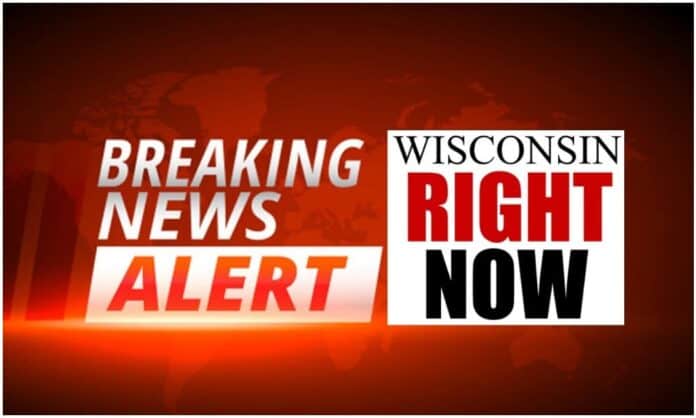America’s K-12 schools have been incrementally adopting multiculturalism and ethnic studies for decades, but this summer’s Black Lives Matter protests have sparked a new level of commitment, a newfound urgency, and a new trend: anti-racist pedagogy targeting “whiteness” as a problem.
If administrators deliver on their promises, the sweeping changes underway will introduce new courses, and model K-12 educational philosophy on the social justice values endorsed by many universities and, increasingly, corporations.
The rapid and radical changes in public and private schools have triggered a backlash among some parents who find the anti-racist message to be anti-white and anti-American, and those who say that it’s historically inaccurate, inflammatory, and divisive.
The K-12 changes are already taking shape. Some institutions, such as Hopkins School in Connecticut and Princeton Day School in New Jersey, are segregating faculty and staff into “affinity groups” – such as Latinx or “White Consciousness” – while holding discussions about racism and white privilege. Others, such as Montgomery County Public Schools in Maryland, are spending nearly half-a-million dollars for “anti-racist system audits” conducted by outside consultants.
The $46,300-a-year Hopkins School, the third oldest independent school in the United States, is revamping its courses “to incorporate a social justice lens, de-center Anglo-European voices,” focus instruction on race and identity, fund student activism and projects, and add a stand-alone course on social justice.
Buffalo Public Schools, where whites account for 22% of enrolled students, this fall adopted Black Lives Matter-themed lessons plans that ask students in grades 2-4 if there are any similarities between the coronavirus epidemic today and the supposedly intentional spread of smallpox to the Native Americans, described as an 18th-century form of “biological warfare.” Middle and high schoolers are taught to think of Western justice as “punitive” and the justice meted out in traditional societies as “restorative/empathetic.” One of the included documents for instructors states: “All white people play a part in perpetuating systemic racism.”
Anti-racist materials present a mix of themes – an emphasis on liberation and resistance movements, critiques of whiteness and systemic racism that come from critical race theory, and an introduction to other social justice causes. At times, the readings and lessons can take an unapologetic, even confrontational, stance toward America’s past and present. But unlike Black History Month, there are few if any mentions of African Americans who defied the color barrier as athletes, artists, inventors, scientists, or soldiers.
The National Education Association’s teaching themes include Justice for George [Floyd] Day, Transgender Day of Remembrance, Globalism and Collective Value, Queer Organizing Behind the Scenes, Unapologetically Black Day and Student Activist Day. A link to social justice math used in Seattle Public Schools teaches data analysis and mathematical modeling through examples of police brutality and excessive use of force.
“Racism is perpetuated by silence – and silence is complicity,” one NEA teacher instruction reads. “Being ‘colorblind’ often serves as a pretense to downplay the significance of race, deny the existence of racism, and erase the experience of students of color.”
An elementary school-level proposed activity called “Match the Action” teaches children to identify different forms of resistance: boycotts, protests, rallies, marches, sit-ins, walkouts, petitions, etc. A proposed activity for middle schoolers reads: “Think about the names of people who are no longer with us who you wish you could talk to. Activists, leaders, elders, people who have been murdered by police.”
Fatima Morrell, an associate superintendent at Buffalo Public Schools, describes her district’s approach to education as an “emancipation pedagogy” that empowers black pupils by “problematizing the Eurocentric perspective” and by authentically representing the African American experience, which allows black students to see themselves reflected in the curriculum and realize their human potential.
That approach rankles Ian Rowe, who has run single-sex charter schools in New York City for the past decade and is the co-founder of Vertex Partnership Academies, which is opening charter schools in the South Bronx in 2022 that will primarily attract black and Hispanic students.
Rowe, also a resident fellow at the conservative American Enterprise Institute, said anti-racist pedagogy glosses over inconvenient facts, like Africans’ role in the global slave trade, and promotes a defeatist philosophy fixated on racial injustice.
“It taps into white guilt and black people’s sense that someone else is responsible for these problems that I have,” Rowe said. “The way this stuff plays out, if you are a low-income black kid, after a while you really start to believe it.”
To reverse the woke juggernaut, parents are forming Instagram sites, and at least one group calling itself No Left Turn in Education is working to mobilize parents around the country.
“They are using very positive words like diversity, equity and inclusivity to mislead you, but the message behind these words is horrifying,” said Elana Yaron Fishbein, a suburban Philadelphia mom who created No Left Turn. “They are grouping and stereotyping human beings by skin color, and they are attributing characteristics to your personality based on skin color.”
“It’s just wrong to present this [material] as true to children who have no other background in U.S. history,” says Jerome Eisenberg, a Los Angeles developer of apartments whose middle-school daughter attends prestigious Brentwood College School, where teachers are introducing critical race theory, viewing America’s past through the prism of racial conflict. “It causes me consternation that bright-line American heroes like Jefferson and Lincoln are cast as bad guys.”
Among the protesting parents: Megyn Kelly, the former Fox News anchor who now has her own podcast. On a recent episode, she said that she was so put off by what she saw as a radical turn in K-12 education that she’s pulling her three kids from their schools in New York City.
“It’s out of control, on so many levels,” Kelly said. “They have gone off the deep end.”
John Murawski / RealClearInvestigations
Go to Source
Reposted with permission







![Protecting Portland: No Good Deed Goes Unpunished [REVIEW]](https://www.wisconsinrightnow.com/wp-content/uploads/2025/07/portland-356x220.jpg)























